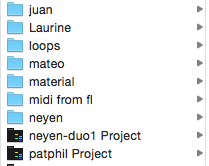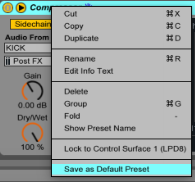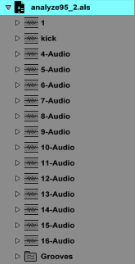Making the Choice To Be Exclusive to a Label
You might have heard of record labels asking for exclusivity, or maybe you’ve at least heard the term mentioned in one way or another. But what does it entail exactly, and how should you approach the decision if you’re ever faced with such an offer?
In another post, I shared a personal story of mine where I had the chance to commit to a huge label and bring my career to the next level — but I refused. It’s the kind of moment that doesn’t happen many times, but when it comes, it calls for careful reflection before making a decision. In my case, it was hard to seek advice from friends, as not many of them had been in the same situation before. I followed my gut feeling, and opted to follow my dreams without considering the possible outcomes.
All and all, there are a few questions to consider:
-
- Where do I see myself in 5 years, musically speaking?
- How can this exclusivity arrangement help me reach that goal?
So that should pretty much form the basis of your reflections.
While it’s hard to imagine ourselves down the road or even to give ourselves a reality check on how achievable our goals are, it is still quite essential to develop a vision of where we want to go. There will be certain things you have in mind, and if you have a firm idea of your goals, it will make it easier to decide whether you should commit to being exclusive to a label or not.
Being one doesn’t exclude the other, and while you can do both individually, the winning combination is to do at least some of both. This way you can create a great release, for example, and you’ll be able to tour to promote it, which then brings you more requests for new releases, and then more gigs, and so on. The wheel spins organically. In this case, if you commit to a label, you will need this label to cover a lot of ground for you because there will be a lot of opportunity.
You want a label, you want to do a bit of everything, and you want to be in control because you like things done your way. This is pretty much a scenario that many people see themselves in, but if you’re not an entrepreneur, it is a difficult road to choose. More power brings more responsibilities, but also all the freedom to express yourself. In this case, exclusivity doesn’t work well for you.
The studio artist
This means that you prefer producing to DJing, and that you’re not so interested in heading out to the clubs to tour. This is a tricky road. Exclusivity can be interesting to you because you will have a platform for your releases, and you can still use aliases to release elsewhere. But to make this worthwhile, your flagship label will have to be a major outlet.
Some artists want to be with a label and plan all their projects around it. They will be okay not creating many releases, will want to tour using the team’s contacts, and they’ll feel comfortable with everything the label does. The great thing about this is that you’re part of the label’s brand. This can make your own image and sound more powerful in a way, because you’ll be part of a collective of artists who you admire, and who will shape the label’s identity. If you produce a bit less, this outcome might be well suited for you.
SEE ALSO : Are online communities replacing labels?












